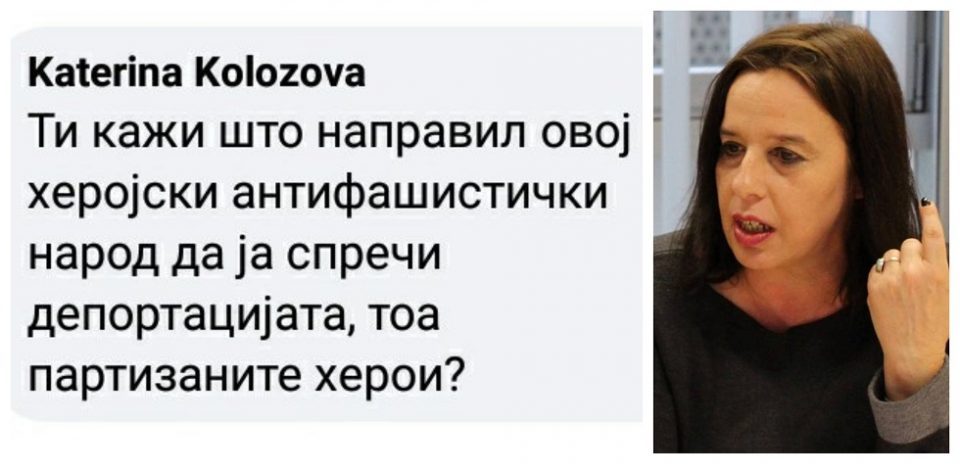The growing dispute between Macedonia and Bulgaria is inevitably drawing closer to probably the most difficult historic issue – the deportation of the Jewish population of Macedonia during the Second World War.
Macedonia’s over 7,000 strong Jewish population, mainly concentrated in Skopje, Bitola and Stip, was rounded up by the Bulgarian forces in March 1943 and carried off to Treblinka, where they were killed to the man. This was based on a demand from Germany and was part of a three stage plan to deport Jews from the territories Bulgaria occupied in World War Two, then Sofia and other cities in Bulgaria. After realizing the fate of the Jews from occupied Macedonia, politicians and the church in Sofia protested and the country eventually refused to deport Jews from Bulgaria proper, and is often praised by Israel and internationally for protecting its Jewish community.
But Bulgaria has been unwilling to accept its role in the deportation of the Macedonian Jews. It’s top politicians reacted angrily in 2013 when the movie Third Half was produced in Macedonia, portraying the deportation and Bulgaria’s role in it. As Prime Minister Zoran Zaev, in his BGNES interview, began to downplay the Bulgarian role in World War Two, referring to it as mere “administration” and praising its subsequent reversal and help in fighting Germany in the final stages of its withdrawal from the Balkans in late 1944, he was exposed to strong criticism from both the left and the right. The few surviving descendants of the Jewish community in Macedonia have joined protests against Zaev’s attempt to accept the Bulgarian view of history.
Zaev did not address this issue himself yet, but some of his public supporters, like professor Katerina Kolozova, came out with a series of social media comments that indicate that the issue is about to be brought to the front stage. In her comments, which also drew a lot of criticism, Kolozova blamed the Macedonians and Macedonian partisans for not doing more to prevent the deportation of the Bulgarians.
You tell me what our heroic, anti-fascist nation did to prevent the deportation, what did the heroic partisans do?, Kolozova asked. She added that according to Bulgarian sources, there was no home-grown support for the deportation and that the Macedonian people did not contribute to the round-up, but that there was also no active resistance to it from the partisans. “Let us not pretend that we are some angelic, blameless people, that we are all descendants of partisans and enlightened anti-fascists. Let us also apologize to the Jews. And the Bulgarians carry their own responsibility for apologizing to the Jews”, Kolozova added.
While the dispute is still developing, in the daily fight to win the court of public opinion it’s usually the case that comments such as these from Kolzoova are put forward as a “trial balloon”, and if they stick, they can be then built upon. In this case, it could lead to absolving Bulgaria for its share of blame in the Holocaust and laying it on the Macedonians.




Comments are closed for this post.